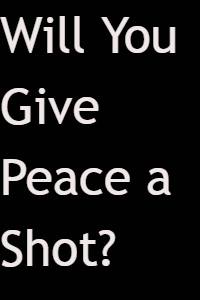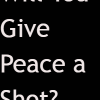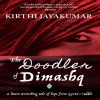
It was January 1999. Seventeen years ago. I walked into my 7th standard classroom, at school. I was in a new year, now. Of all the books we had that year as part of our coursework, the one that I enjoyed most was a compilation of short stories for our English lessons, called “One World”. Over the winter break before school began, I devoured every story in the book, and committed it to memory, in the hope that I would someday act on the messages in them.
One of those stories remains with me even today: ‘Chief Seattle’s Letter’. The letter was written by Chief Seattle, the Chief of the Squamish Indians in the land that we now call the United States of America. The government of the USA in the 1800s wanted to purchase the Salish lands, and in response to the government’s attempt, Chief Seattle wrote this letter. It was the first piece in the book, and all I remember thinking was how much truth there was in what he had written, and how much relevance everything he said in the letter continues to have, in contemporary times. In short, he speaks about how we, as humanity, are common inheritors of the earth’s offerings – and that one does not claim ownership over anything, as the earth doesn’t belong to man, it is man who belongs to the earth.
Seventeen years after I read that story, I sat in a digital classroom along with Ziauddin Iqbal, my student from Mazar-e-Sharif, Afghanistan. In our weekly exchanges, Zia and I spent time sharing and learning from each other. One of the most beautiful and most meaningful moments in our exchange that stays with me all the time, is a conversation we had about war. Zia spoke of something very powerful and moving. He told me that we tend towards war only because our minds are bent in that direction. As humans, we have plenty to offer back to the world, but we are predisposed to taking, demanding and expecting, while we seldom give back, or do anything for the world around us. Zia then shared that we don’t have a limitation on the basis of war – from politics to religion, to assumed hatred and assumed ideologies, everything has come to be known as a basis of war.
Zia’s words made me think of how we really are war-like in our thought processes. Our communication is laced with violence. We use words and convey emotions that suggest a predisposition towards violence. The root of this is essentially in the belief that we think we own anything and everything around us. If we spend a moment just reflecting on our relationship with the world around us, we will easily be able to find the number of times we make ourselves the centre of the world. I did this. I said that. I want this. I need that. I must. I should. I have. I deserve. I demand. I expect. I. I. I. It is when these multiplies and cross each other’s paths, that there is conflict. Add to the mix generous dollops of assumptions, demonisation, warped ideas of history and borrowed hatred. The end result? War.
The current education system is lacking in this very area: catering to creating empathy-driven individuals. Our focus remains so riveted to creating people that can be able cogs in the economy’s wheel, allowing it to roll along and expand on the world’s coffers. In the process, we’re constantly allowing for people to ignore what really matters: the element of humanity.Everyone in today’s generation is fighting a war on borrowed hatred. War is deemed good for business and the coffers of a select few enablers, and that vested interest keeps an agenda of promoting hatred as the norm going. Terrorist outfits are feeding off the combined effect of marginalisation and borrowed hatred. The world is burning with hatred that is only kept alive through incorrect and in-sensitised education. We are fond of making economy-worthy machines, but seldom invest in human-ising them.
We strive to create peaceful people, through peaceful tools, peaceful language and peaceful ways to solve conflict. Conflict is inevitable, but, if we create a proclivity towards peace in people around us, we naturally choose peace, we naturally turn to peace, we naturally prioritise peace, and we don’t have place to escalate conflict at any level. Be it a bully in a classroom or two nations seeking ownership over territory.
Zia’s exposition of this age old truth set me back by seventeen years. I was an idealistic eleven-year-old, and continue to be idealistic, even at (this information is redacted, haha!). It’s really all in the mind: war, disease, assumption. If only we spend a moment each day to dust these cobwebs away!
About the Author







Comments